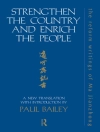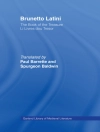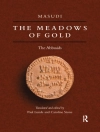Carefully focused essays on major aspects of one of the most significant German literary movements, the Storm and Stress.
Sturm und Drang refers to a set of values and a style of writing that arose in Germany in the second half of the eighteenth century, a particularly intense kind of pre-Romanticism that has often been represented as marking the beginning of an independent modern German culture.
The circle of writers around the young Goethe, including Herder, Lenz, Klinger, and later Schiller, felt frustrated by the Enlightenment world of reason, balance, and control, and turned instead to nature as the source of authentic experience. Inspired by Rousseau and Herder, by Shakespeare, and by folk culture, they rebelled against propriety and experimented with new literary forms, their creative energy bursting through conventions that seemed staid and artificial.
The Sturm und Drang has often been cited by those attempting to legitimate nationalism and irrationalism, but scholars have more recently emphasized the diversity of the movement and the links between it and the Enlightenment. This volume of essays by leading scholars from the UK, the US, and Germany illuminates the guiding ideas of the movement, discussing its most important authors, texts, and ideas, and taking account of the variety and complexity of the movement, placing it more securely within late-eighteenth-century European history. The main focus is on literature, and in particular on the drama, which was of special importance to the Sturm und Drang. However, the essays also outline the social conditions that gave rise to the movement, and consideration is given to different currents of ideas that underlie the movement, including areas of thought and bodies of work that traditional approaches have tended to marginalize.
Contributors: Bruce Duncan, Howard Gaskill, Wulf Koepke, Susanne Kord, Frank Lamport, Alan Leidner, Matthias Luserke, Michael Patterson, Gerhard Sauder, Margaret Stoljar, Daniel Wilson, Karin Wurst.
David Hill is a Senior Lecturer in the Department of German Studies at the University of Birmingham, UK.
Содержание
Introduction — Wulf Koepke
The
Sturm und Drang: An Introductory Survey — David Hill
Sturm und Drang Passions and Eighteenth-Century Psychology — Bruce Duncan
Herder and the
Sturm und Drang — Wulf Koepke
Ossian, Herder, and the Idea of Folk-Song — Howard Gaskill
‘Shakespeare has quite spoilt you.’ The Drama of the
Sturm und Drang — F. J. Lamport
The Theater Practice of the
Sturm und Drang — Michael Patterson
‘Die schönsten Träume von Freiheit werden ja im Kerker geträumt’: The Rhetoric of Freedom in the
Sturm und Drang — David Hill
The Young Goethe’s Political Fantasies — W. Daniel Wilson
‘Wilde Wünsche’: The Discourse of Love in the
Sturm und Drang — Karin A. Wurst
Discursive Dissociations: Women Playwrights as Observers of the
Sturm und Drang — Susanna Kord
Schiller and the End of the
Sturm und Drang — Alan Leidner
The
Sturm und Drang in Music — Margaret Stoljar
The Periodization of the
Sturm und Drang — Gerhard Sauder
Об авторе
SUSANNE KORD is Professor of German at University College London and has published widely on crime and antisemitism, ethics in horror films, women and violent crime, and many other books and essays on film (especially genre and Hollywood movies), women’s literary history and reception, and eighteenth- and nineteenth-century literature and culture. She has received 6 major awards for her writing. In the interest of making some of women’s unknown literature available to modern readers, she has edited four collections of plays by women and translated three dramas into English. Her major works include Murderesses in German Writing, 1720-1860 (Cambridge UP, 2013), Lovable Crooks and Loathsome Jews: Antisemitism in German and Austrian Crime Writing Before the World Wars (Mc Farland, 2018). Her latest book is a short exploration of Drew Goddard’s meta-horror film The Cabin in the Woods (2012), forthcoming with Liverpool University Press in 2022.












